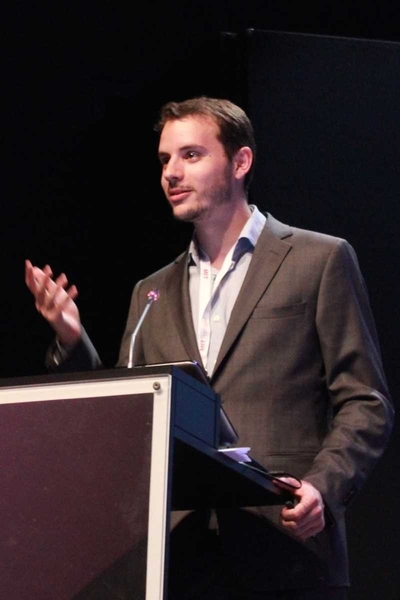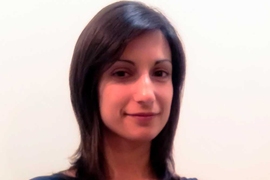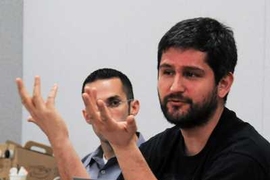MIT Portugal program PhD candidate Miguel Amador has received a Fulbright award enabling him to study at MIT. Starting in September, Amador will be studying the regulatory frameworks relating to technological innovation in breakthrough therapies such as cellular therapies, and their effect on patient access to the therapies.
Cell therapies represent a complex new technological platform in health care that challenges the traditional way medicines are developed and authorized to enter into the market and reimbursed. These new technologies have promoted the development of integrative regulatory frameworks, such as the adaptive licensing model, extensively studied by Kenneth Oye, associate professor of political science and of engineering systems at MIT. This model is already under a pilot test in Europe. Fulbright recipient Amador will work with Oye on how to enable adaptive frameworks in current U.S. and EU clinical, political, and economic contexts.
Amador has already performed several case studies in Portugal, Spain, and France, identifying specific stakeholders and bottlenecks in the regulatory process. A comparison of the current U.S. and EU regulatory frameworks will allow evaluation of the effect of current regulations on timely and sustainable access to new therapies, like those based in the use of cells.
While at MIT, Amador will work on regulations from the perspective of patient health and medical records, a novel approach in this field of research. The aim is to propose policies and tools that are needed for enabling new adaptive regulatory frameworks, for instance, in the expansion of the continuous use of patients’ clinical data on the regulatory and reimbursement evaluations.
At the same time, Amador aims to work with industry partners and compare the development of the new field of cell therapies with other more familiar technological platforms for medicines, such as small-molecule (e.g., aspirin) and biological (e.g., monoclonal antibodies). This will allow the design of adaptive frameworks to be also able to incorporate technological innovations into the product lifecycle, addressing the specific challenges of cell therapies.
This research approach — considering an international vision of different countries’ regulatory frameworks — can lead to the development of effective public policies, namely in Portugal, where the field of cell therapies is taking its first steps.
MIT Portugal Program PhD candidates at MIT are also supported by Fundação para a Ciência e Tecnologia (FCT).








